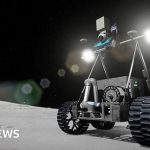
Introduction
Natural Language Processing (NLP) is an exciting field of study that aims to bridge the gap between human language and machine understanding. It involves teaching computers to understand, interpret, and generate human language in a way that is both meaningful and contextually relevant.

The Evolution of NLP
Over the years, NLP has evolved significantly, thanks to advancements in machine learning and artificial intelligence. Initially, simple rule-based systems were used to process and understand language. However, these systems had limited capabilities and struggled with complex sentence structures and ambiguous meanings.
With the advent of statistical models and deep learning algorithms, NLP has made great strides in understanding human language. Techniques like word embeddings, recurrent neural networks (RNNs), and transformers have revolutionized the field, enabling machines to comprehend language nuances and generate human-like responses.

Challenges in NLP
NLP faces several challenges due to the complexity of human language. These challenges include:
- Ambiguity: Words and phrases can have multiple meanings, making it challenging to accurately interpret the intended message.
- Sarcasm and irony: Understanding the subtle nuances of sarcasm and irony can be difficult, as they often rely on context and tone.
- Misunderstandings: Machines can misinterpret language due to homonyms, homophones, or regional dialects.

Applications of NLP
NLP has found applications in various fields, including:
- Virtual Assistants: Voice-controlled virtual assistants like Siri and Alexa utilize NLP to understand and respond to user queries.
- Machine Translation: NLP powers machine translation systems like Google Translate, enabling seamless communication across different languages.
- Text Summarization: NLP algorithms can analyze and summarize large volumes of text, making it easier to extract key information.

The Future of NLP
The future of NLP looks promising as researchers continue to explore innovative methods and technologies. We can expect further advancements in areas such as:
- Contextual Understanding: Machines will better understand context, allowing for more accurate interpretations and responses.
- Emotion Recognition: NLP algorithms will be able to detect and understand emotions conveyed through text, leading to more empathetic interactions.
- Conversational Agents: Chatbots and virtual assistants will become more human-like, engaging in natural and meaningful conversations.

Conclusion
Natural Language Processing has come a long way, enabling machines to communicate with humans more effectively. With ongoing advancements and research, we can expect NLP to have a profound impact on various industries, revolutionizing the way we interact with technology.





